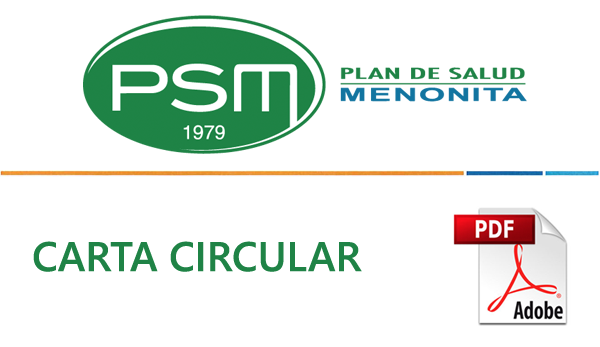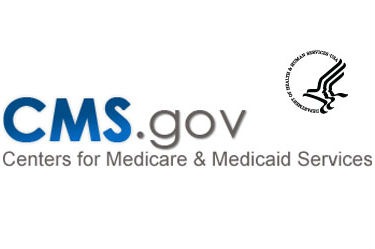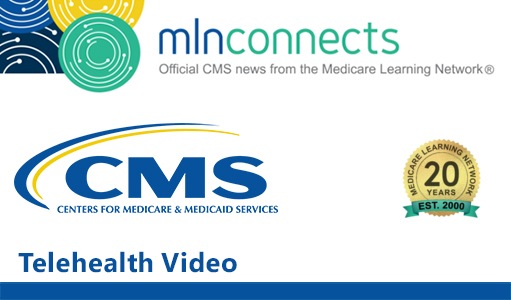
Autor: Ray


CMS NEWS : OPENING UP AMERICA AGAIN
In: Circulares, Comunicados, NoticiasCenters for Medicare & Medicaid Services (CMS) Recommendations Re-opening Facilities to Provide Non-emergent Non-COVID-19 Healthcare: Phase I The United States is experiencing an unprecedented public health emergency from the COVID-19 pandemic. Healthcare facilities in some areas are stretched to their limits of capacity, and surge areas have been needed to augment care for patients with COVID-19. To expand capacity to care for these patients and to conserve adequate staff and supplies, especially personal protective equipment (PPE), on March 18 the Centers for Medicare & Medicaid Services (CMS) recommended limiting non-essential care and expanding surge capacity into ambulatory surgical centers and other areas. However, CMS recognizes that at this time many areas have a low, or relatively low and stable incidence of COVID-19, and that it is important to be flexible and allow facilities to provide care for patients needing non-emergent, non-COVID-19 healthcare. In addition, as states and localities begin to stabilize, it is important to restart care that is currently being postponed, such as certain procedural care (surgeries and procedures), chronic disease care, and, ultimately, preventive care. Patients continue to have ongoing healthcare needs that are currently being deferred. Therefore, if states or regions have passed the Gating Criteria (symptoms, cases, and hospitals) announced on April 16, 2020, then they may proceed to Phase I. The Guidelines for Opening Up America Again can be found at the following link: https://www.whitehouse.gov/openingamerica/#criteria Maximum use of all telehealth modalities is strongly encouraged. However, for care that cannot be accomplished virtually, these recommendations — the first in a series of recommendations — may guide healthcare systems and facilities as they consider resuming in-person care of non-COVID-19 patients in regions with low incidence of COVID-19 disease. Non-COVID-19 care should be offered to patients as clinically appropriate and within a state, locality, or facility that has the resources to provide such care and the ability to quickly respond to a surge in COVID-19 cases, if necessary. Decisions should be consistent with public health information and in collaboration with state public health authorities. Careful planning is required to resume in-person care of patients requiring non-COVID-19 care, and all aspects of care must be considered — for example:
- Adequate facilities, workforce, testing, and supplies
- Adequate workforce across phases of care (such as availability of clinicians, nurses, anesthesia,pharmacy, imaging, pathology support, and post-acute care)
The following recommendations aim to give healthcare facilities some flexibility in providing essential nonCOVID-19 care to patients without symptoms of COVID-19 in regions with low incidence of COVID-19. Healthcare systems or clinicians have flexibility to re-start clinically necessary care for patients with nonCOVID-19 needs or complex chronic disease management requirements in accordance with the following general considerations:
General Considerations
- In coordination with State and local public health officials, evaluate the incidence and trends forCOVID-19 in the area where re-starting in-person care is being considered.
- Evaluate the necessity of the care based on clinical needs. Providers should prioritizesurgical/procedural care and high-complexity chronic disease management; however, selectpreventive services may also be highly necessary.
- Consider establishing Non-COVID Care (NCC) zones that would screen all patients for symptoms of COVID-19, including temperature checks. Staff would be routinely screened as would others who will work in the facility (physicians, nurses, housekeeping, delivery and all people who would enter the area).
- Sufficient resources should be available to the facility across phases of care, including PPE, healthy workforce, facilities, supplies, testing capacity, and post-acute care, without jeopardizing surge capacity.
Personal Protective Equipment
• Consistent with CDC’s recommendations for universal source control, CMS recommends that
healthcare providers and staff wear surgical facemasks at all times. Procedures on the mucous membranes including the respiratory tract, with a higher risk of aerosol transmission, should be done with great caution, and staff should utilize appropriate respiratory protection such as N95 masks and face shields.
- Patients should wear a cloth face covering that can be bought or made at home if they do not already possess surgical masks.
- Every effort should be made to conserve personal protective equipment.
https://www.cdc.gov/coronavirus/2019-ncov/hcp/ppe-strategy/index.html
Workforce Availability
- Staff should be routinely screened for symptoms of COVID -19 and if symptomatic, they should be tested and quarantined. Staff who will be working in these NCC zones should be limited to working in these areas and not rotate into “COVID-19 Care zones” (e.g., they should not have rounds in the hospital and then come to an NCC facility).
- Staffing levels in the community must remain adequate to cover a potential surge in COVID-19 cases.
Facility Considerations
- In a region with a current low incidence rate, when a facility makes the determination to provide in-person, non-emergent care, the facility should create areas of NCC which have in place steps to reduce risk of COVID-19 exposure and transmission; these areas should be separate from other facilities to the degrees possible (i.e., separate building, or designated rooms or floor with a separate entrance and minimal crossover with COVID-19 areas).
- Within the facility, administrative and engineering controls should be established to facilitate social distancing, such as minimizing time in waiting areas, spacing chairs at least 6 feet apart, and maintaining low patient volumes.
- Visitors should be prohibited but if they are necessary for an aspect of patient care, they should be pre-screened in the same way as patients.
Sanitation Protocols
- Ensure that there is an established plan for thorough cleaning and disinfection prior to using spaces or facilities for patients with non-COVID-19 care needs.
- Ensure that equipment such as anesthesia machines used for COVID-19 (+) patients are thoroughly decontaminated, following CDC guidelines.
Supplies
• Adequate supplies of equipment, medication and supplies must be ensured, and not detract for the community ability to respond to a potential surge.
Testing Capacity
- All patients must be screened for potential symptoms of COVID-19 prior to entering the NCC facility, and staff must be routinely screened for potential symptoms as noted above.
- When adequate testing capability is established, patients should be screened by laboratory testing before care, and staff working in these facilities should be regularly screened by laboratory test as well.
All facilities should continually evaluate whether their region remains a low risk of incidence and should be prepared to cease non-essential procedures if there is a surge. By following the above recommendations, flexibility can allow for safely extending in-person non-emergent care in select communities and facilities.

Carta Circular 20-022 & ANEJO
In: Circulares, Noticias
Carta Normativa 20-0415
In: Normativas
Carta Circular 20-021 & ANEJOS
In: Circulares, Noticias
Carta Circular 20-019 ENMENDADA
In: Circulares, Noticias
Carta Normativa 20-0331A
In: Normativas
COVID-19: Telehealth Video, Coinsurance and Deductible Waived & More
In: Comunicados, Eventos, NoticiasCENTERS FOR MEDICARE & MEDICAID SERVICES (CMS)

Special Edition – Tuesday, April 7, 2020
- New Video Available on Medicare Coverage and Payment of Virtual Services
- Families First Coronavirus Response Act Waives Coinsurance and Deductibles for Additional COVID-19 Related Services
- Guidance for Processing Attestations from Ambulatory Surgical Centers (ASCs) Temporarily Enrolling as Hospitals during the COVID-19 Public Health Emergency
- COVID-19: Expanded Use of Ambulance Origin/Destination Modifiers
- Lessons from The Front Lines: COVID-19
- CMS COVID-19 Update Call Today
New Video Available on Medicare Coverage and Payment of Virtual Services
CMS released a video providing answers to common questions about the Medicare telehealth services benefit. CMS is expanding this benefit on a temporary and emergency basis under the 1135 waiver authority and Coronavirus Preparedness and Response Supplemental Appropriations Act.
Families First Coronavirus Response Act Waives Coinsurance and Deductibles for Additional COVID-19 Related Services
The Families First Coronavirus Response Act waives cost-sharing under Medicare Part B (coinsurance and deductible amounts) for Medicare patients for COVID-19 testing-related services. These services are medical visits for the HCPCS evaluation and management categories described below when an outpatient provider, physician, or other providers and suppliers that bill Medicare for Part B services orders or administers COVID-19 lab test U0001, U0002, or 87635.
Cost-sharing does not apply for COVID-19 testing-related services, which are medical visits that: are furnished between March 18, 2020 and the end of the Public Health Emergency (PHE); that result in an order for or administration of a COVID-19 test; are related to furnishing or administering such a test or to the evaluation of an individual for purposes of determining the need for such a test; and are in any of the following categories of HCPCS evaluation and management codes:
- Office and other outpatient services
- Hospital observation services
- Emergency department services
- Nursing facility services
- Domiciliary, rest home, or custodial care services
- Home services
- Online digital evaluation and management services
Cost-sharing does not apply to the above medical visit services for which payment is made to:
- Hospital Outpatient Departments paid under the Outpatient Prospective Payment System
- Physicians and other professionals under the Physician Fee Schedule
- Critical Access Hospitals (CAHs)
- Rural Health Clinics (RHCs)
- Federally Qualified Health Centers (FQHCs)
For services furnished on March 18, 2020, and through the end of the PHE, outpatient providers, physicians, and other providers and suppliers that bill Medicare for Part B services under these payment systems should use the CS modifier on applicable claim lines to identify the service as subject to the cost-sharing wavier for COVID-19 testing-related services and should NOT charge Medicare patients any co-insurance and/or deductible amounts for those services.
For professional claims, physicians and practitioners who did not initially submit claims with the CS modifier must notify their Medicare Administrative Contractor (MAC) and request to resubmit applicable claims with dates of service on or after 3/18/2020 with the CS modifier to get 100% payment.
For institutional claims, providers, including hospitals, CAHs, RHCs, and FQHCs, who did not initially submit claims with the CS modifier must resubmit applicable claims submitted on or after 3/18/2020, with the CS modifier to visit lines to get 100% payment.
Additional CMS actions in response to COVID-19, are part of the ongoing White House Task Force efforts. To keep up with the important work the Task Force is doing in response to COVID-19, visit www.coronavirus.gov. For a complete and updated list of CMS actions, and other information specific to CMS, please visit theCurrent Emergencies Website.
Guidance for Processing Attestations from Ambulatory Surgical Centers (ASCs) Temporarily Enrolling as Hospitals during the COVID-19 Public Health Emergency
CMS is providing needed flexibility to hospitals to ensure they have the ability to expand capacity and to treat patients during the COVID-19 public health emergency. As part of the COVID-19 Emergency Declaration Blanket Waivers for Health Care Providers CMS is allowing Medicare-enrolled ASCs to temporarily enroll as hospitals and to provide hospital services to help address the urgent need to increase hospital capacity to take care of patients.
COVID-19: Expanded Use of Ambulance Origin/Destination Modifiers
During the COVID-19 Public Health Emergency, Medicare will cover a medically necessary emergency and non-emergency ground ambulance transportation from any point of origin to a destination that is equipped to treat the condition of the patient consistent with state and local Emergency Medical Services (EMS) protocols where the services will be furnished. On an interim basis, we are expanding the list of destinations that may include but are not limited to:
- Any location that is an alternative site determined to be part of a hospital, Critical Access Hospital (CAH), or Skilled Nursing Facility (SNF)
- Community mental health centers
- Federally Qualified Health Centers (FQHCs)
- Rural health clinics (RHCs)
- Physicians’ offices
- Urgent care facilities
- Ambulatory Surgery Centers (ASCs)
- Any location furnishing dialysis services outside of an End-Stage Renal Disease (ESRD) facility when an ESRD facility is not available
- Beneficiary’s home
CMS expanded the descriptions for these origin and destination claim modifiers to account for the new covered locations:
- Modifier D – Community mental health center, FQHC, RHC, urgent care facility, non-provider-based ASC or freestanding emergency center, location furnishing dialysis services and not affiliated with ESRD facility
- Modifier E – Residential, domiciliary, custodial facility (other than 1819 facility) if the facility is the beneficiary’s home
- Modifier H – Alternative care site for hospital, including CAH, provider-based ASC, or freestanding emergency center
- Modifier N – Alternative care site for SNF
- Modifier P – Physician’s office
- Modifier R – Beneficiary’s home
For the complete list of ambulance origin and destination claim modifiers see Medicare Claims Processing Manual Chapter 15, Section 30 A.
Lessons from The Front Lines: COVID-19
On April 3, CMS Administrator Seema Verma, Deborah Birx, MD, White House Coronavirus Task Force, and officials from the FDA, CDC, and FEMA participated in a call on COVID-19 Flexibilities. Several physician guests on the front lines presented best practices from their COVID-19 experiences. You can listen to the conversation here.
CMS COVID-19 Update Call Today
Tuesday, April 7 from 2 to 3 pm ET
Register for Medicare Learning Network events. Registration closes at 12pm ET.
CMS update on recent actions taken to address the COVID-19 public health emergency.
Target Audience: All Medicare fee-for-service providers and interested stakeholders.

Carta Circular 20-019
In: Circulares, Noticias


